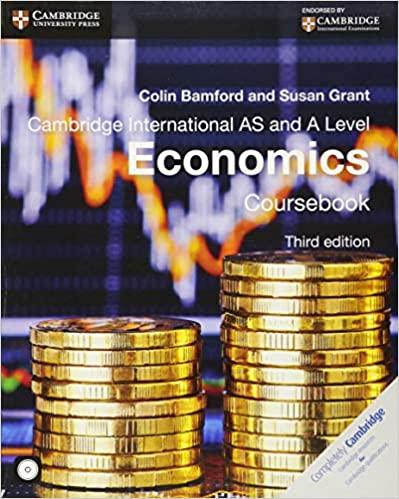Answered step by step
Verified Expert Solution
Question
1 Approved Answer
Unit 1: Liberalism Describe the historical origins of liberalism. What type of rule does liberalism respond to, and reject? What sorts of institutions did liberals
Unit 1: Liberalism
- Describe the historical origins of liberalism. What type of rule does liberalism respond to, and reject? What sorts of institutions did liberals install in place of the old, discarded ones?
- John Stuart Mill is an important early advocate of liberal thought. What sorts of institutions and policies does Mill's version of liberalism require? liberals agree with Mill's proposals? Why or why not?
- Adam Smith's Wealth of Nations outlines the most effective path to prosperity. Describe that path. What sorts of political institutions and practices does Smith's view entail?
- Describe Adam Smith's conception of human nature. How is Smith's account of human nature connected to his wider theory of economic development?
- In the Wealth of Nations, Adam Smith provides an account of international trade. Describe that account. Why is Smith so critical of the prevailing wisdom of his day?
Unit 2: Conservatism
- Describe the historical origins of conservatism. What historical event are modern conservatives responding to, and why are they so critical of this event?
- Describe the role and place of community in conservative thought. How is the conservative view of community connected to its critique of liberal thought?
- In Ten Conservative Principles, Russell Kirk says that the law is a quintessentially conservative institution. Why?
- According to Russel Kirk's Ten Conservative Principles, politicians abandon all utopian impulses. Why?
- According to Russell Kirk's Ten Conservative Principles, the institution of private property is the foundation of all just and stable societies. Why?
Unit 3: Socialism
- Describe the historical origins of socialism. What economic system are socialists responding to, and why they so critical of this system?
- Describe the socialist solution to the problems produced by free markets. What policies and political institutions are required to combat economic inequality?
- What, according to R.H. Tawney, is the essential difference between political and economic power? Why is this difference so important?
- According to Tawney, what is/are the solution/s to inequalities of economic power?
- The Regina Manifesto tries to overcome "the evils of capitalism." How does it propose to do so? What is the ultimate goal of the Regina Manifesto?
Step by Step Solution
There are 3 Steps involved in it
Step: 1

Get Instant Access to Expert-Tailored Solutions
See step-by-step solutions with expert insights and AI powered tools for academic success
Step: 2

Step: 3

Ace Your Homework with AI
Get the answers you need in no time with our AI-driven, step-by-step assistance
Get Started


